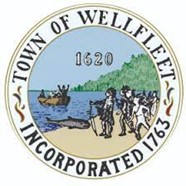
 The 2016 Memorandum of Understanding (MOU III) between the town of Wellfleet and the National Park Service defines the governance of the Herring River Restoration Project. It specifies that the Herring River Executive Council (HREC) is responsible for making all substantive decisions about the project. Its members are "the Wellfleet Town Administrator and two members of the Wellfleet Select Board, or alternatively, up to three designee(s) appointed by the Select Board; [and] The Superintendent of the Cape Cod National Seashore or his/her designee, and one additional CCNS designee."
The 2016 Memorandum of Understanding (MOU III) between the town of Wellfleet and the National Park Service defines the governance of the Herring River Restoration Project. It specifies that the Herring River Executive Council (HREC) is responsible for making all substantive decisions about the project. Its members are "the Wellfleet Town Administrator and two members of the Wellfleet Select Board, or alternatively, up to three designee(s) appointed by the Select Board; [and] The Superintendent of the Cape Cod National Seashore or his/her designee, and one additional CCNS designee."
The Executive Council is thus made up of transients. Of the six people who have represented Wellfleet during the council's five-year life span, only one attended more than half the 19 meetings during that interval; others came and went. No member who attended the first meeting in 2017 remains on the council today.
Executive Council members are not required to have the education or experience necessary to make scientific or ecological judgments. The following provision in MOU IV (a 2019 update) compensates for the council's acknowledged lack of scientific knowledge: "The HREC may seek technical guidance and assistance from the expert technical personnel of the Parties and Project Partner Agencies individually as members of the Herring River Technical Team."
MOU IV defines the Technical Team as follows:
"The HRTT shall have no set number of members, it meets as needed or desired, and may consist of staff members from [a group of named] federal, state, and local governmental entities. Participating staff members shall be designated at the sole discretion of any participating agency."
Earlier in the Technical Team's history – when it was called the Herring River Technical Committee – its deliberations were public. That changed when Wellfleet and the National Park Service revised their agreement in June 2019. MOU IV reads: "The Parties disclaim any intention to create in the HRTT a public body for purposes of the Massachusetts Open Meeting Law or the federal or Massachusetts Public Records Act." Thereafter, the public has learned only what the decision-makers choose to disclose.
Not even the identity of the technical experts has been publicly reported since MOU IV became binding. The Technical Team has not provided any succession plan. Lack of transparency makes it unclear whether younger scientists have joined the group to ensure a scientific bridge to the project's long-term future. The ecological transition of the estuary, which is expected to last for decades, will require well-informed management throughout. That duration will almost certainly extend beyond the current Technical Team members' employment with the agencies they represent.
The Herring River Restoration Project, in theory, will be implemented by an ever-changing group of elected and appointed officials who have insufficient scientific knowledge to make critical decisions. The project's scientific agenda is determined by state and federal employees who are not appointed or controlled by local officials. Records documenting the deliberations and decisions of the scientists planning the project have not been available to the public since 2019.
The public-facing decision-makers – the Executive Council – are theoretically accountable to the community. The Technical Team, however, appears to be making the major decisions without public oversight. See Governance in Practice.
Return to Home page
Return to Editorial
Top of page